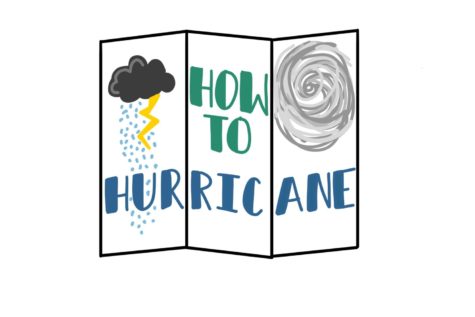OPINION | Tulane should better prepare students for hurricanes and evacuations
October 19, 2022

Hurricanes have been a part of life at Tulane University long before any current students were even a twinkle in their parents’ eyes. Though every region in the country has its set of natural disasters of which it must mitigate the consequences, hurricanes and New Orleans have a notable relationship.
New Orleans has been hit by roughly 18% of all hurricanes that have made landfall in North America since 1851. Each year, the city and university manage to defy the odds yet again, surviving storms responsible for the displacement of tens of thousands of citizens.
For students coming from other states — or even countries — unaffected by this type of natural disaster, hurricanes may be an almost mythic, terrifying concept. Perhaps much of the fear of hurricanes comes as a result of the lore surrounding them, yet many students may feel unprepared for such a disaster when it actually strikes.
Given Tulane’s unique location in the path of so many hurricanes, the school has to prepare its students for what is most likely an inevitability in each Tulane student’s career: a truly destructive storm.
Jason Ferguson is the executive director of emergency management in the Office of Emergency Management at Tulane. As his title would suggest, he coordinates all affairs relating to the university’s disaster management and mitigation and assisting students in forming their own evacuation plans.
Ferguson says, “During the summer, our office is part of a series of webinars for new parents. [These] webinars focus on hurricane planning and what families and students can do to be prepared. And how students should develop their own personal evacuation plan that they can implement independently of the university.”
Ferguson went on to describe the preparation that his office offers first-year students, restating that it was each student and their family’s responsibility to form an evacuation plan with or without assistance from the university. The OEM offers a variety of opportunities for students to create an evacuation plan, but none are mandatory or specifically highlighted during freshman orientation. As a result, this hurricane evacuation information may get lost amongst all the other new instructions that freshmen receive.
After the relatively sudden evacuation during Hurricane Ida, Tulane needs to better assist its incoming students in preparing for potential disasters.
The simplest way to do this would be including evacuation planning as a mandatory part of freshman orientation. While first-year students are presented with various webinars and activities about clubs and off-campus opportunities, there is no required webinar or activity which fully explains the necessity of creating a ready-to-go evacuation plan or provides students with an example.
Were freshmen presented with not only an opportunity, but a requirement that they create a cohesive and — ideally — bullet-proof evacuation plan that does not rely on university resources, evacuations may have run much smoother than the one we experienced most recently.
Without a cohesive evacuation plan, students are left floundering on the day a hurricane hits. The final responsibility to make an evacuation plan will always fall on the students, but the university needs to assist in a much more hands-on capacity for students to safely escape the destructive impacts of a future hurricane.





















Leave a Comment